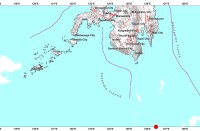(Eagle News) — The Office of the Ombudsman has ordered the indictment of Davao del Norte Rep. Antonio Floirendo Jr. over a deal that saw a company where he sits as board member doing business with the Bureau of Corrections.
Floirendo was ordered charged before the Sandiganbayan for violation of the Anti-Graft and Corrupt Practices Act in an 11-page resolution approved by the Ombudsman last week.
In ordering his indictment, the Ombudsman found merit in Speaker Pantaleon Alvarez’s allegation Floirendo was elected as representative of Davao del Norte’s second congressional district when a joint venture agreement between Tagum Agricultural Development Co. Inc. and the Bureau of Corrections for Tadeco’s lease of 3000 hectares of the Davao Penal Colony was renewed in 2003.
The Ombudsman noted that Floirendo “had a direct and indirect financial interest in said contract, owning at the time 75,000 hectares of Tadeco worth P7,500,000,” noting also that most of Tadeco stocks were “under the control of” Floirendo and his family through ANFLOCOR.
As such, the Omnudsman said Floirendo, as a government official, violated Section 3(h) of RA 3019 which prohibits him from “directly or indirectly having financial or pecuniary interest in any business, contract or transaction in connection with which he intervenes or takes part in his official capacity, or in which he is prohibited by the Constitution or by any law from having any interest.”
“Article VI, Section 14 of the 1987 Constitution is very clear, a member of the House of Representatives is not allowed to have a direct or indirect financial interest in any contract with the government. Had the intention been to exclude ownership of small value of stocks in a corporation, the framers of the Constitution could have stated it,” the Ombudsman added.
Earlier, a special panel of the Commission on Audit already recommended that the Tadeco-BuCor JVA be cancelled on the grounds it violated the 1935 and 1987 Constitution that put limits to public agricultural land that can be leased.






